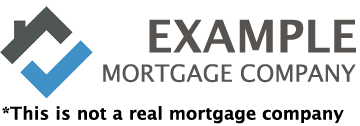

When you take out a mortgage loan, your lender puts a lot of trust in you to repay the loan. Lenders can do this because they do thorough financial background checks on borrowers before agreeing to lend money. Your interest rate will be based on how credit-worthy you are based on those checks. Examining bank statements is one of the ways lenders check for eligibility. If you want to have better odds of being approved for a mortgage, before you apply, make sure that your bank accounts do not include these three things in the last two months of statements:
1. Non-Sufficient Fund (NSF) charges
When you bounce a check or try to buy something without enough money in your account, it will show up on your bank accounts as non-sufficient funds (NSF) or overdraft charges. These are a red flag to lenders that you are not responsible with your finances. Depending on how many you have, you may be offered a higher interest rate or may not qualify for a mortgage at all. With FHA loans, even if a borrower is approved by the computerized system, his or her loan is required to be manually reviewed if there are any NSFs on the bank accounts. The best plan is to carefully avoid overdraft charges for two months before applying.
2. Large Deposits
Lenders get suspicious about large, undocumented deposits in the recent past. It could indicate that your down payment or required reserves might come from objectionable source. For example, lender might think you have taken a cash advance on your credit card to cover your closing costs or down payment. That is just more borrowed money and would put more strain on you to repay your mortgage loan. Large deposits might also indicate an illegal gift for your down payment from either the home seller or a real estate agent. If you cannot document that your large deposit is from an acceptable source, lenders will not factor it in to your overall credit reserves.
Home buyers are allowed to receive down payments funds as gifts, but they have to be from approved individuals and well documented. Be sure to ask your lender about this before having the funds deposited in your account.
3. Regular Payments to Individuals
Lenders want to be able to account for all of your transactions in order to judge your creditworthiness. If there are regular, automatic payments to individuals rather than to businesses or banks, lenders will flag them as undisclosed credit accounts. Whether have a loan to your parents or you have an unofficial loan with a friend, make sure you report those loans on your application. It would be better if you could avoid those types of payments on your bank statements altogether.
Once you know what items to keep off your bank statements, you can spend a few months preparing your finances to avoid those things. This will make you a better candidate for mortgage approval - and homeownership - when you do apply.
If you have any questions, give us a call today at 801-221-9400 . We are always happy to hear from you and answer any mortgage or real estate questions that you have.
